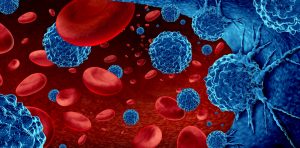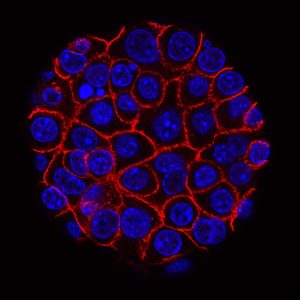Avastin shows promise in advanced breast cancer
pharmafile | August 20, 2009 | News story | Research and Development, Sales and Marketing | Roche, avastin, breast cancer
Avastin's rise continues as new data suggests it improves progression-free survival as a second line treatment for advanced breast cancer.
The phase III trial RIBBON-2 paired Roche's drug with a range of commonly-used chemotherapies.
Avastin (bevacizumab) improved the time that women with previously treated advanced HER2 negative breast cancer lived without the disease getting worse, compared to chemotherapy alone.
It is the first phase III study to show this benefit to the drug as a second-line treatment for the disease, with no new safety concerns.
''Advanced breast cancer is aggressive and nearly all women will need additional treatment when initial chemotherapy stops working,'' said Hal Barron, head of global development at Genentech and chief medical officer.
''We have learned for the first time that Avastin given in the second line with standard chemotherapies helped women live longer without the disease worsening and look forward to discussing these new data with the FDA.''
The international, randomised, double-blind, placebo-controlled trial involved nearly 700 patients with previously treated metastatic HER2-negative breast cancer.
Chemotherapy regimens used were taxanes – paclitaxel, protein-bound paclitaxel or docetaxel plus gemcitabine, capecitabine and vinorelbine.
Avastin has received a string of indications and this year Roche paid $46.8 billion to gain full future rights for the drug from Genentech, the biotech company which developed it.
Earlier this month Avastin won US approval for use with interferon alpha, to treat metastatic renal cell carcinoma.
In both the US and Europe it is approved for colorectal, non-small cell lung, breast and kidney cancers, with an additional indication for brain cancer in the US.
The drug was approved in Europe two years ago – and in the US 18 months ago – in combination with paclitaxel, for the first-line treatment of advanced breast cancer.
Last month the European licence was extended to allow it to be used with another chemotherapy, docetaxel.
One area of failure has been in treating early-stage colon cancer, where it did not lower the risk of the disease returning in patients who had tumours removed.
The first treatment in the VEGF-inhibitor class, Avastin binds and blocks the key driver of tumour angiogenesis, the process required for a tumour to grow and spread.
Related Content

Roche’s Alecensa approved by FDA as lung cancer treatment
Roche has announced that the US Food and Drug Administration (FDA) has approved Alecensa (alectinib) …

Genentech’s Columbi meets primary endpoint in phase 3 trial for lymphoma treatment
Genentech, part of the Roche Group, has announced that its phase 3 STARGLO trial has …

FDA accepts BLA for AstraZeneca and Daiichi Sankyo’s datopotamab deruxtecan for breast cancer treatment
AstraZeneca and Daiichi Sankyo have announced that their Biologics License Application (BLA) for datopotamab deruxtecan …







